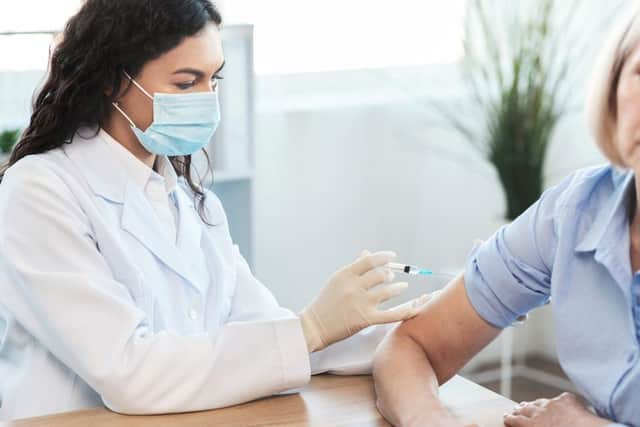Flu jab: is it safe to have a flu vaccine in 2020 amid Covid-19 pandemic - and can it give you flu?
As winter approaches, health experts are urging those who are eligible to get the flu vaccine to do so, amid fears that contracting flu and coronavirus could be extremely dangerous.
Concerns over co-infection have meant the flu vaccination programme is being expanded this year to allow more people to receive it for free, including those aged between 55 and 64 in Scotland, or 50 and 64 in the rest of the UK.
Advertisement
Hide AdAdvertisement
Hide AdBut is the flu vaccine safe? Here’s everything you need to know.


How safe is the flu vaccine?
According to the NHS, flu vaccines are very safe. Some people may experience some side effects following the vaccination, although these are typically mild and only last for a day or two.
Common side effects include:
- Slightly raised temperature
- Muscle aches
- A sore arm where the needle went in - this is more common among people aged 65 and over and can be alleviated with painkillers, such as paracetamol or ibuprofen
Most adults can have the vaccine, but it should be avoided if you have had a serious allergic reaction to a flu vaccine in the past.
People with an egg allergy may be at serious risk of an allergic reaction, as some flu vaccines are made using eggs. If you have an egg allergy, make sure to ask your GP or pharmacist for a low-egg or egg-free vaccine.
Additionally, if you are ill with a high temperature, you should wait until you are better before receiving the vaccine.
Is it safe to go to have the flu vaccine amid the pandemic?
Doctors have said it is safe to visit your GP surgery, local pharmacy or drive and walk through clinics, to get the flu vaccine amid the ongoing pandemic, providing social distancing protocols are maintained where possible.
The flu vaccine will not protect against coronavirus, but it has been shown to reduce the risk of flu illness, hospitalisation and death.
Is the vaccine effective?
Advertisement
Hide AdAdvertisement
Hide AdThe NHS states that the flu vaccine is the most effective protection against flu, helping to protect against the main types of flu viruses. However, there is still a chance you could catch the virus.
If you do become ill with the flu after vaccination, it is likely to be milder and not last as long.
Having the vaccine will also help to prevent the virus spreading to others who may be at more risk of serious health problems from the flu.
It can take between 10 and 14 days for the flu vaccine to work.
Can the vaccine give you flu?
None of the flu vaccines contain live viruses, meaning they cannot give you the flu.
If you feel unwell after vaccination, you may have picked up another bug or caught the flu before the vaccine had worked.
Who can have the vaccine?
In Scotland, the following people are eligible for the flu vaccine from October:
- All primary school children
- Children aged 2 to 5 (children must be aged 2 years or above on 1 September 2020 and not yet in school)
- Anyone aged 65 and over (by 31 March 2021)
- Anyone with an eligible health condition
- Pregnant women
- Healthcare workers
- Unpaid and young carers
Advertisement
Hide AdAdvertisement
Hide Ad- Those living in the same home as people previously shielding from coronavirus
- Social care workers who provide direct personal care
From December, those aged 55 to 64 (by 31 March 2021) who would not usually be eligible are to be offered the vaccine.
If you are aged 16 or over and not eligible for the free vaccination, you can get the vaccine in many community pharmacies for a fee.
Where can I get the vaccine?
In Scotland, the flu vaccine is being administered differently this year and may not be at your GP surgery as normal.
Depending on where you live, you may be able to get your vaccine at:
- healthcare settings, such as GP practices, hospitals or community pharmacies
- community venues, such as town halls, village halls, sports halls and secondary schools
- drive-through or walk-through clinics
For more information, visit nhsinform.scot.
